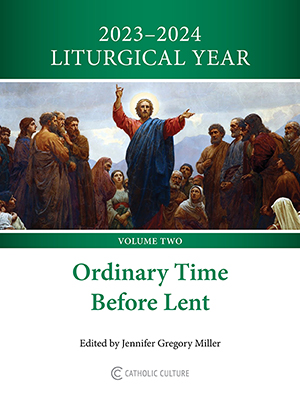The Clerk's Tale
By Diogenes ( articles ) | Aug 12, 2005
Three thoughts on the Clark crash:
1. Unless the news reports are total fabrications -- and Clark hasn't said they are -- he's guilty of a gross offense against the integrity of a marriage, which is an offense against justice, even if no sexual mischief took place. Further, the violation of his priestly commitments ("clerics are to shun completely everything that is unbecoming to their state" -- Canon 285) is objectively blameworthy, and would be so if Clark were an unknown and silent curate. As he is a high-profile defender of orthodox morality, and a public critic of sexual decadence, even the relationship Clark presently admits to is a betrayal of his convictions.
2. On Amy's blog several commenters remarked that if Clark were a liberal priest we (cons) would blame liberalism, but since he's a con we blame human nature. This is half true. For libs, sexual morality is a matter of claiming permissions to which they have no right. Though they deny it publicly, their project is intrinsically subversive. Caught celebrating -- i.e., putting their project into practice -- we cons don't charge them with a lapse (a weakness of will), but insist their role of saboteurs is no longer in doubt. When a con is found chaucerizing his secretary, his failure is a failure to be what he stands for. His guilt is magnified, not extenuated, by his professed convictions.
3. Clark could still let God bring good out of evil -- for Clark himself and for the Church he betrayed -- by giving an example of authentic contrition. This is Oscar Wilde in De Profundis
I remember that I was sitting in the dock on the occasion of my last trial listening to Lockwood's appalling denunciations of me -- like a thing out of Tacitus, like a passage in Dante, like one of Savonarola's indictments of the Popes of Rome -- and being sickened with horror at what I heard, suddenly it occurred to me, how splendid it would be if I was saying all this about myself. I saw then at once that what is said of a man is nothing. The point is, who says it. A man's very highest moment is, I have no doubt at all, when he kneels in the dust, and he beats his breast, and tells all the sins of his life.
Somewhat hysterical, but the point is valid. Redemption begins with a confession that there is a condition one needs to be redeemed from. Were Clark to forswear the usual half-denials and semi-excuses that keep his enemies gloating and his friends apprehensive ("Are you asking me for forgiveness, Monsignor, or asking me for loyalty?"), tell the plain truth, and embrace the penance consonant with the truth, he could still achieve the only victory that matters.
All comments are moderated. To lighten our editing burden, only current donors are allowed to Sound Off. If you are a current donor, log in to see the comment form; otherwise please support our work, and Sound Off!








